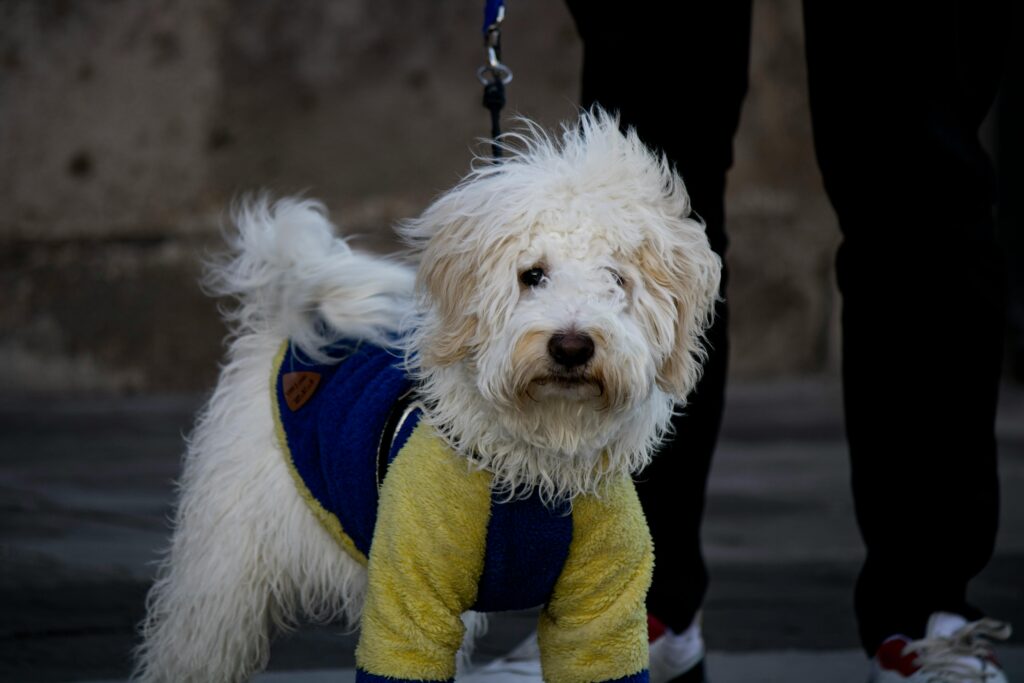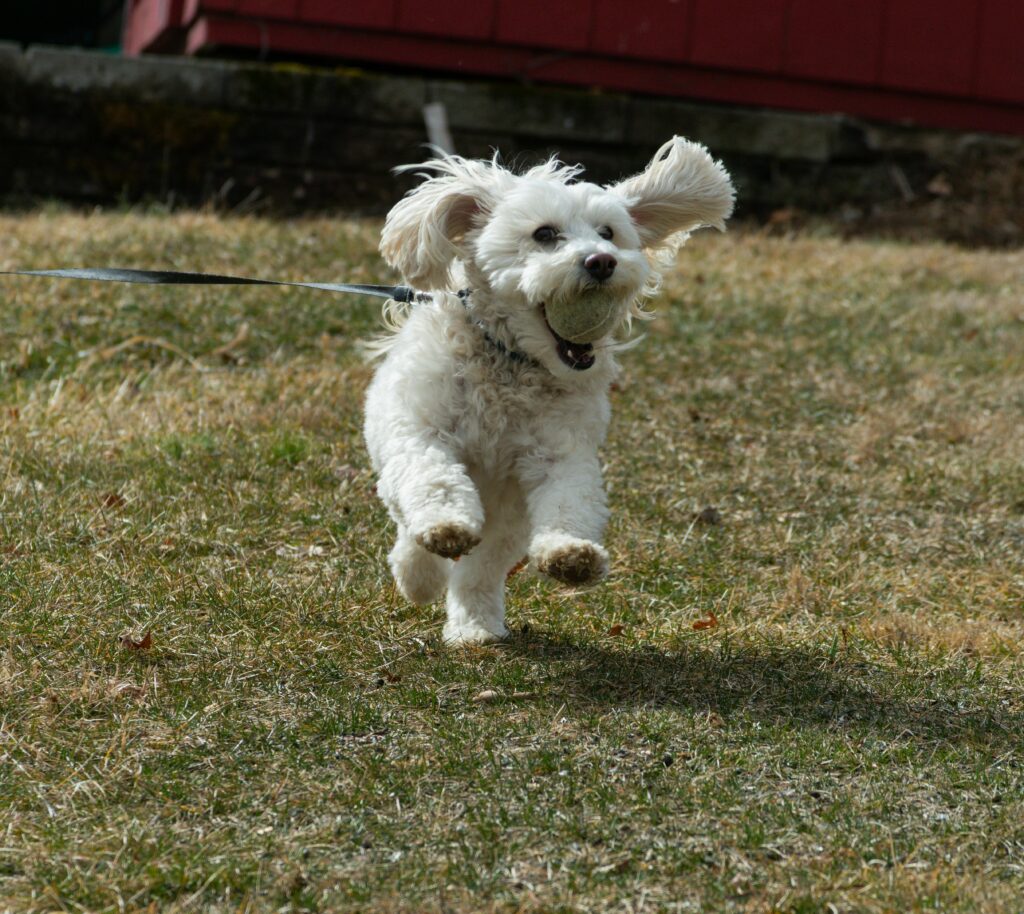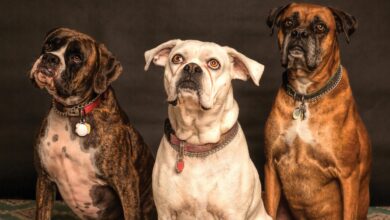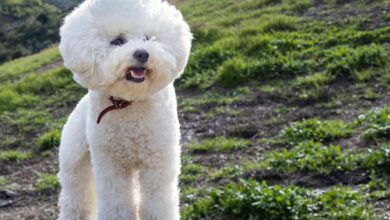Doodle Breeds: Popular Poodle Mixes for Friendly, Low-Shedding Pets

Table of Contents
Are You Ready to Welcome a Doodle into Your Life?
Perhaps you’ve been searching for a canine companion with a winning personality and a coat that won’t leave your home looking like a hair salon exploded. Maybe you’ve heard tales of the Poodle’s intelligence and the retriever’s sweet nature, and you’re wondering what magical combination results from their union. If the idea of a friendly, often hypoallergenic dog has captured your imagination, then you’re likely considering a Doodle breed.
These delightful hybrids, born from crossing a Poodle with another purebred dog, have surged in popularity over recent years, and for good reason. They often inherit the best traits from both parent breeds, resulting in intelligent, adaptable, and loving pets with a significant advantage for those with allergies: their typically low-shedding coats.
This article will delve into the captivating world of Doodle breeds, exploring some of the most popular mixes, their unique characteristics, and why a Doodle might just be the perfect addition to your family.
Understanding the Appeal of Doodle Breeds

The explosion in popularity of Doodle breeds isn’t simply a trend; it’s driven by a combination of desirable characteristics that resonate with modern pet owners. What makes these Poodle mixes so sought after? It largely boils down to a few key factors:
The Low-Shedding Promise
For many individuals and families, allergies are a significant barrier to pet ownership. While no dog is truly 100% hypoallergenic, Poodles are known for their minimal shedding, which is often passed down to their Doodle offspring. This doesn’t guarantee an allergy-free experience for everyone, but it significantly reduces the amount of dander and hair in the environment, making Doodle breeds a more feasible option for allergy sufferers. If you’ve previously thought dog ownership was out of reach due to allergies, exploring Doodle breeds could open up a world of possibilities.
Intelligence and Trainability
The Poodle is renowned for its intelligence and eagerness to please, traits that are frequently inherited by Doodle breeds. This high level of intelligence makes them highly trainable and capable of learning a wide range of commands and tricks. Whether you’re interested in basic obedience, agility, or even therapy work, a Doodle’s trainability makes them excellent candidates for a variety of activities. Their bright minds also mean they require mental stimulation, which you can provide through training, puzzle toys, and engaging activities.
Temperament and Social Nature
While individual temperaments vary, Doodle breeds are generally known for their friendly, affectionate, and social personalities. They often thrive on human interaction and enjoy being part of the family’s activities. Many Doodle mixes are good with children and other pets, making them well-suited for family environments. Their amiable nature often makes them excellent therapy or emotional support animals.
Hybrid Vigor
Crossing two purebred lines can sometimes result in “hybrid vigor,” which is the increased health and vitality often seen in mixed-breed animals compared to their purebred parents. While not a guarantee of perfect health, hybrid vigor can contribute to a reduced risk of certain hereditary conditions that are prevalent in specific purebred lines. However, it is still crucial to source puppies from responsible breeders who conduct health testing on the parent dogs.
Popular Doodle Breeds: A Closer Look

The world of Doodle breeds is diverse, with numerous Poodle mixes gaining recognition. Here’s a look at some of the most popular and beloved Doodle breeds you might encounter:
The Beloved Goldendoodle
Perhaps the most well-known Doodle breed, the Goldendoodle is a cross between a Golden Retriever and a Poodle. Revered for their friendly, outgoing, and gentle nature, Goldendoodles are often described as perpetual puppies. They are highly intelligent, trainable, and possess a strong desire to please, making them excellent family pets. Their coat types can vary from wavy to curly, and they typically shed less than a purebred Golden Retriever. If you’re looking for an energetic and affectionate companion who loves playtime and cuddling, a Goldendoodle might be the perfect match for you.
Goldendoodle Coat Types and Care
Understanding the different coat types is crucial for Goldendoodle owners. You’ll typically see three main variations:
- Straight Coat: Similar to a Golden Retriever’s coat, this type sheds more than other Goldendoodle coat types.
- Wavy Coat: A blend of the Golden Retriever and Poodle coats, offering a balance of texture and shedding. This is a common and often desirable coat type.
- Curly Coat: Most closely resembles the Poodle’s coat and is the most likely to be low-shedding, making it ideal for allergy sufferers. This coat type requires regular grooming to prevent matting.
Regardless of coat type, regular brushing is essential to prevent mats and maintain a healthy coat. Professional grooming every few months or more frequently, depending on the coat type, is also recommended.
The Energetic Labradoodle
A cross between a Labrador Retriever and a Poodle, the Labradoodle shares many of the Goldendoodle’s desirable traits, including intelligence, trainability, and a friendly disposition. Labradoodles are often more energetic than Goldendoodles and require plenty of exercise to stay happy and healthy. They are enthusiastic about activities like fetching, swimming, and hiking. If you lead an active lifestyle and are looking for a canine partner to join you on your adventures, a Labradoodle could be your ideal companion.
Labradoodle Generations and What They Mean

Labradoodle breeding often involves different “generations,” which refer to the specific crosses made:
- F1: A purebred Labrador Retriever crossed with a purebred Poodle. This is the first generation mix.
- F1B: An F1 Labradoodle crossed with a purebred Poodle. This generation often results in a more Poodle-like coat, which is typically more hypoallergenic.
- F2: An F1 Labradoodle crossed with another F1 Labradoodle. Coat types can be more variable in this generation.
- Multigenerational: Breeding F2 Labradoodles or higher generations with each other. Breeders aiming for consistent traits and coat types often use this approach.
Understanding generations can help you predict potential coat type and temperament, but it’s still essential to meet the parents or inquire about their traits.
The Playful Aussiedoodle
Combining the intelligence and energy of the Australian Shepherd with the Poodle’s traits, the Aussiedoodle is a dynamic and highly trainable breed. Known for their striking Merle coats (inherited from the Australian Shepherd) and often captivating heterochromia (different colored eyes), Aussiedoodles are as visually appealing as they are smart. They do require significant mental and physical stimulation and are best suited for active individuals or families who can provide them with plenty of exercise and training. If you’re up for a challenge and want a dog that can excel in various canine sports and activities, consider an Aussiedoodle.
Aussiedoodle Energy Levels and Training
Aussiedoodles are not couch potatoes. Their Australian Shepherd lineage gives them a strong work drive and high energy levels. You should be prepared to provide them with at least an hour of vigorous exercise daily, which could include long walks, runs, fetch, or enrolling them in agility or herding trials (even if just for fun!). Their intelligence makes them quick learners, but it also means they can become bored and destructive if not adequately stimulated mentally and physically. Positive reinforcement training methods work best with this sensitive and smart breed.
The Charming Cavapoo
A smaller Doodle breed, the Cavapoo is a cross between a Cavalier King Charles Spaniel and a Poodle. These charming dogs are known for their affectionate, gentle, and playful personalities. They are typically lower energy than larger Doodle breeds and can adapt well to apartment living, provided they receive regular walks and playtime. Their small size and sweet nature make them excellent companions for individuals and families alike. If you’re seeking a cuddly and manageable companion, a Cavapoo could be the perfect fit for you.
Cavapoo Suitability for Families
Cavapoos are often highly recommended for families with children due to their gentle and patient nature. Their smaller size makes them less likely to accidentally knock over small children, and they generally have a calm and adaptable temperament. However, it’s crucial to supervise interactions between children and any dog and teach children how to interact respectfully with animals.
The Compact Maltipoo
Another popular smaller Doodle breed, the Maltipoo is a cross between a Maltese and a Poodle. These pint-sized pups are known for their affectionate and devoted personalities. They are often described as “velcro dogs” due to their strong attachment to their owners. Maltipoos are relatively low-energy and can thrive in smaller living spaces. Their hypoallergenic coat is a significant draw for allergy sufferers, but it does require regular grooming to prevent matting. If you’re looking for a loving and portable companion who will shower you with affection, a Maltipoo might be your perfect furry friend.
Maltipoo Grooming Needs
Maltipoos typically have soft, fluffy coats that are prone to matting if not regularly brushed. Daily brushing is recommended to keep their coats tangle-free. They also require professional grooming every 6-8 weeks to maintain their coat length and prevent mats from becoming severe. Pay special attention to areas around their eyes and ears, which can be particularly prone to matting.
Choosing the Right Doodle Breed for You

With so many wonderful Doodle breeds to choose from, how do you decide which one is the best fit for your lifestyle and family? Consider the following factors:
Your Lifestyle and Activity Level
Are you an avid hiker, a weekend warrior, or a homebody?Different Doodle breeds have varying energy levels. If you’re active, a Labradoodle or Aussiedoodle might be a good match. If you prefer a calmer companion, a Cavapoo or Maltipoo could be more suitable. Be honest with yourself about how much time you can dedicate to exercise and play.
Living Situation
Do you live in a spacious house with a large yard or a cozy apartment? Larger, more energetic Doodles need more space to roam and play, although they can adapt to smaller spaces if they receive sufficient exercise outside the home. Smaller Doodles like the Cavapoo and Maltipoo are often well-suited for apartment living.
Family Dynamics
Do you have young children or other pets? Some Doodle breeds are known for being particularly good with children, while others might require more careful introduction to existing pets. Research the specific breed mix and consider the temperament of both parent breeds.
Grooming Commitment
Are you prepared for regular brushing and professional grooming appointments? Even low-shedding Doodle breeds require consistent grooming to prevent mats and maintain their coat health. If you prefer a low-maintenance grooming routine, a low-shedding, curly-coated Doodle might still be too much for you.
Potential Health Considerations
While hybrid vigor can be beneficial, all dogs can be susceptible to certain health conditions. Reputable breeders will screen parent dogs for common health issues in their respective purebred lines. Research the potential health concerns associated with the specific Doodle breed you are considering and factor in potential veterinary costs.
Responsible Doodle Ownership
Bringing a Doodle into your home is a significant commitment. Responsible ownership involves:
- Providing Proper Training and Socialization: Early socialization and consistent positive reinforcement training are crucial for a well-behaved Doodle.
- Ensuring Adequate Exercise: Meet your Doodle’s exercise needs to prevent boredom and behavioral issues.
- Maintaining a Healthy Diet: Feed your Doodle a balanced diet appropriate for their age, size, and activity level.
- Regular Veterinary Care: Schedule regular check-ups, vaccinations, and preventative care with your veterinarian.
- Grooming: Commit to the necessary grooming routine to keep your Doodle’s coat healthy and mat-free.
- Mental Stimulation: Provide puzzle toys, training sessions, and engaging activities to keep your intelligent Doodle mentally stimulated.
Finding Your Perfect Doodle Companion
If you’ve decided that a Doodle breed is the right fit for you, the next step is finding a reputable source. Consider:
- Reputable Breeders: Look for breeders who prioritize the health and well-being of their dogs. They should conduct health testing, be transparent about their breeding practices, and be willing to answer your questions. Avoid breeders who offer a variety of different breeds or refuse to let you visit their facility.
- Rescue Organizations and Shelters: Don’t overlook the possibility of adopting a Doodle from a rescue organization or animal shelter. Many wonderful Doodles are in need of loving homes.
In Conclusion: Is a Doodle Right for You?
Doodle breeds offer a compelling combination of intelligence, trainability, friendly temperaments, and often low-shedding coats, making them incredibly appealing to a wide range of pet owners. From the beloved Goldendoodle to the charming Cavapoo, there’s likely a Doodle mix that could be the perfect fit for your lifestyle and family. By carefully considering your needs, researching different Doodle breeds, and committing to responsible ownership, you can embark on a rewarding journey with a loving and loyal Doodle companion. Are you ready to experience the joy and affection that a Doodle can bring into your life?
Share Your Doodle Stories!
Do you have a Doodle in your family? What do you love most about your furry friend? Share your experiences and thoughts in the comments below!



